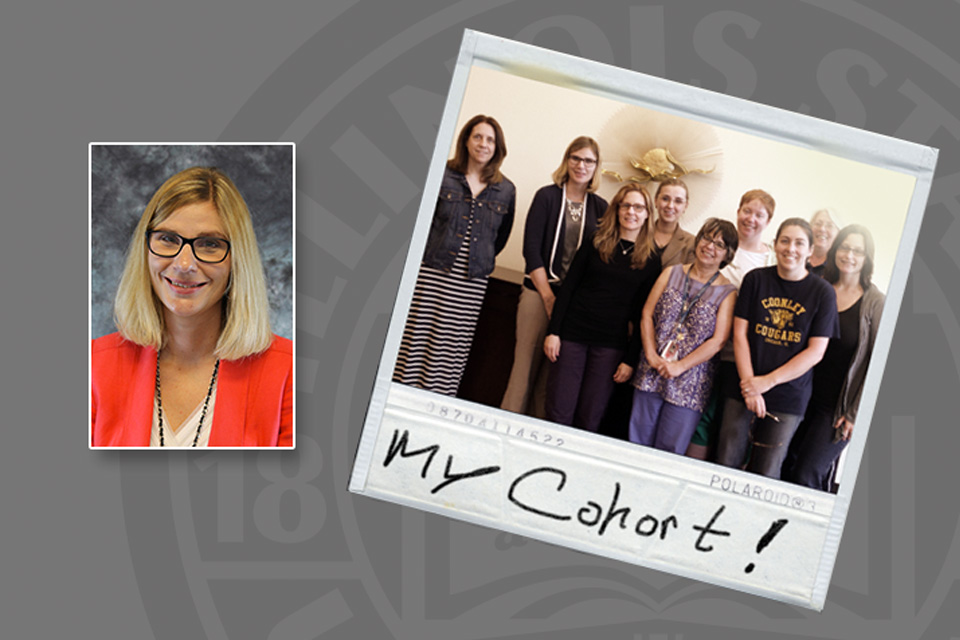Sara Jozwik ’00, Ed.D. ’15, was a bilingual special education teacher and adjunct faculty member at a college near Tinley Park when she first started the Department of Special Education’s hybrid, Chicago-based doctoral cohort program in 2010. Five years later she completed her degree and was recruited by her alma mater as a tenure-track professor. She recently offered her feedback from her experience in the program.
What were some of the strengths of the program in terms of supporting doctoral candidates?
I really appreciated that we went through the program as a cohort because there were people with different backgrounds, interests, and experiences. Because of that, I was able to learn a lot more about other doctoral candidates’ areas, such as adaptive P.E. and transition for severe disabilities, in addition to my own specialty of bilingual special education. It was also helpful to have the support of a network of colleagues when you are all going through the most rigorous parts of the program. We met once a week for three years, and we kind of became like a family in the sense.
How would you rate the support and expertise of the faculty?
Both the instructors who came up to the Chicago area and the ones I reached out to via email based on their research interests were so responsive and willing collaborators that I do not believe my experience with them would have been much different had I taken classes on campus. You wonder how you’re going to connect with faculty, but I ended up doing research studies with almost every faculty member I took a class from. I will also say, I did not take a class with anyone who served on my dissertation committee, including the chair. Just about everyone in the department also met with us once a year in an informal symposium to chat with each other about our interests. It was definitely a benefit to be able to draw from such diverse expertise.
What did you think of the course selection and getting what you wanted out of the program?
The part of the program that was surprising to me was my own change in mindset from ‘I just want to get a doctorate to learn more about teaching my own students with disabilities who are English language learners’ to ‘I want to be a teacher and researcher in higher education.’ I signed on thinking that I would stay in the same career and become a better teacher, and that opportunity is definitely there for practitioners who go through the program. But in my opinion, this program has much of a research focus as a Ph.D. or an R1 university without that price tag that accompanies. If it did have that price tag, I would not have been able to afford it. It brought out an interest that I didn’t realize that I had. I was able to complete three different manuscripts of three different studies before I even got to the dissertation. A lot of that was because of the fact I was reaching out to faculty and they were really willing and interested in helping me through that process. The opportunity is really there for you to take advantage and really make of the program what you will.
Why would you recommend the program to individuals who are interested in pursuing their doctorate?
Illinois State is a reputable university with an affordable price tag. Other universities can’t really compete. I did a lot of research on a lot of programs on what it would cost. The strong reputation, the affordability, and the fact that it is a cohort model where you are going to have a built-in network of support and faculty who will back you, the choice was clear for me. I think those kind of things come together and it’s definitely the way to go if you want to get a doctorate in special education.
For more information or to apply to the doctoral program, visit the Department of Special Education’s website. The application deadline for fall admission is March 31.


It is nice to see that the program has continued to evolve since I earned my Ed.D. from the ISU program in 1983.